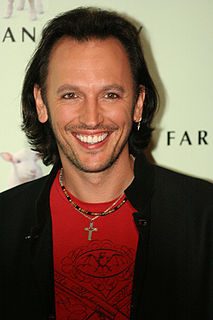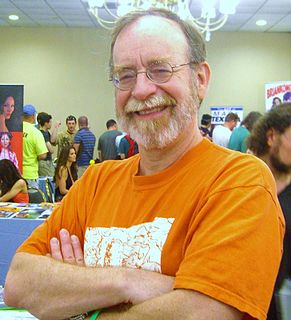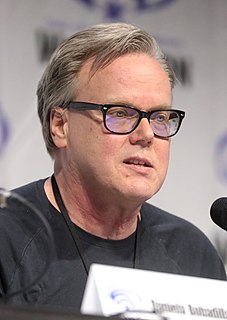A Quote by Simon Toyne
If you look at the great Westerns, and at Greek, Roman, and Norse mythology, they all contain elements in common: a harsh landscape; demons or outlaws trying to stop or kill the protagonist; and there are mythical legends at their core, innate in all cultures.
Related Quotes
I have always been interested in mythology and history. The more I read, the more I realized that there have always been people at the edges of history that we know very little about. I wanted to use them in a story and bring them back into the public's consciousness. Similarly with mythology: everyone knows some of the Greek or Roman legends, and maybe some of the Egyptian or Norse stories too, but what about the other great mythologies: the Celtic, Chinese, Native American?
I had been a reader of THOR in college. I had read the Stan Lee and Jack Kirby stuff. I had loved it. I had been a Norse mythology fan since I was a kid and was thrilled to discover a comic that was kind of based on Norse mythology-there's not a one-to-one correspondence, but there's no reason there should be. I was delighted to find it, and I didn't care that it wasn't exactly the myth. For one thing, Thor didn't have red hair in the comics. I was fine with that.
We know that for the last 300 or 400 years, the size of human bodies is growing. Now what happened is that we suddenly, in history, have the backward process. We have these great Greek athletes, we have ultra-powerful Roman soldiers. You look at the size of the Roman soldier who has to carry all this ammunition. You're talking about 300,000 Arnold Schwartzeneggers.
I was nurtured on Greek Mythology and the classical epics. I lived and breathed Homer. Other mythologies - the Russian, the Norse, the Persian, the Indian, Egyptian, etc. - all came later. First and foremost were the Greeks, and they were all living in my head as though I were Zeus and they were a clamoring Chorus of Athenas.
I did have the resource of having taught Greek mythology and the history of Western civilization, and you can go back into the plays of Aeschylus and follow what happens when people seek revenge, and there are people plucking their eyes out. And Greek mythology is filled with all kinds of monsters and whatnot.






































